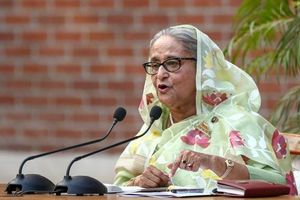Disney is at the center of a heated legal battle revolving around the wrongful death lawsuit of Dr. Kanokporn Tangsuan, filed by her husband, Jeffrey Piccolo. The case has raised eyebrows, especially due to Disney's claim concerning the arbitration clause tied to Piccolo's subscription to Disney+, complicate matters of accountability and consumer rights.
Dr. Kanokporn Tangsuan passed away after suffering a severe allergic reaction following dinner at Raglan Road Irish Pub, located at Disney Springs, Florida, last October. Piccolo alleges the restaurant's staff was well aware of his wife's life-threatening allergies to nuts and dairy yet failed to provide safe dining options, leading to her tragic death.
According to the lawsuit, Tangsuan had repeatedly informed the waitstaff about her condition when ordering food. They claimed assurance from the restaurant staff about the adequacy of food allergy safeguards available, relying on Disney's reputation for ensuring visitor safety.
After enjoying the meal, which included scallops and onion rings, Tangsuan began to experience difficulty breathing. Despite using her EpiPen, she passed away shortly after reaching the hospital, prompting Piccolo to seek more than $50,000 for damages related to his wife's death.
Disney's argument claims this lawsuit should be resolved through arbitration rather than courts due to the terms Piccolo agreed to when signing up for Disney+. They assert this agreement includes binding arbitration clauses, which would preclude jury trials for any disputes involving Disney or its affiliates.
The company contends Piccolo waived his right to litigate when he activated his Disney+ account, stating, "By clicking Agree & Continue, you agree to our Subscriber Agreement." This has raised significant concerns, as Disney suggests any subscriber to their service effectively relinquishes their rights, including the right to sue for personal injuries.
The plaintiffs' attorneys responded vehemently, labeling Disney's defense as "incredible" and questioning the validity of their position. They argued, "This argument borders on the surreal," contending it implies anyone who opts for even trial subscriptions has forever waived the right to legal recourse for any injuries.
Disney's motion claims Piccolo's agreement as the account holder extends to any disputes concerning Tangsuan’s death. They also argued he consented to terms of use during other transactions, including purchasing park tickets, reinforcing their claim about the binding nature of the arbitration clause.
Attorneys quickly refuted this, indicating Piccolo is suing as the personal representative of Tangsuan’s estate, not simply on his own behalf. They claim she never agreed to the contracts and her rights must be considered separately.
Critics view Disney's strategy as outrageous, questioning whether it's ethical for their subscribers to unknowingly waive rights concerning serious matters like personal injury claims by merely signing up for streaming services. Critics argue this practice could have far-reaching consequences, potentially leaving consumers vulnerable.
Highlighting the absurdity of the situation, Piccolo's legal team pointed to the widespread issue systemic to large companies like Disney where the fine print might strip individuals of fundamental legal protections. This case raises important questions about consumer rights and corporate accountability, particularly within the entertainment industry.
The intricacies of the case will be presented before a Florida judge, who will determine if Disney's defense holds any merit. With significant public interest, any ruling made will take center stage, spotlighting consumer rights against corporate policies.
The tussle between justice for Tangsuan’s unfortunate demise and Disney's reliance on arbitration clauses exemplifies the tension between consumer advocacy and corporate shield mechanisms. At stake is not only the fate of Piccolo’s lawsuit but also the broader implications for how businesses handle serious claims and the contractual obligations imposed on consumers.
Awaiting court decisions, Piccolo and Tangsuan's family stress their commitment to seek accountability from Disney. They hope for legal recourse, ensuring other families do not face similar situations, highlighting the need for transparency and responsibility within global companies.



